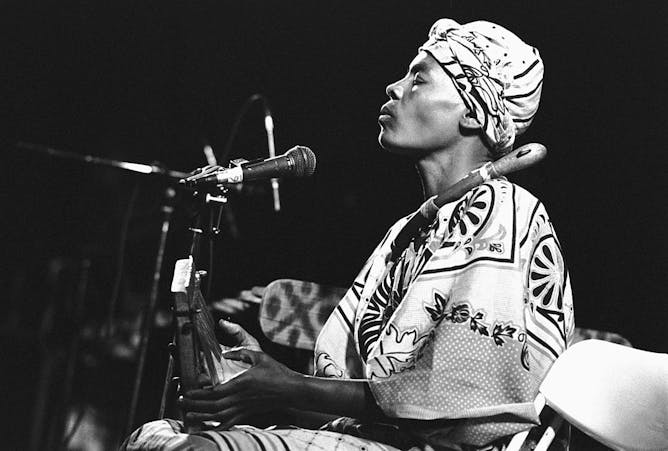|
Scientists can learn a lot about human evolution from the fossil record. But some things they’re very interested in don’t fossilize – like pregnancy and prenatal growth rates. Paleoanthropologist Tesla Monson and her colleagues knew that teeth definitely do show up in the fossil record, and they start developing about halfway through gestation. All of which gave them an idea: Could they use the size of a species’ molars as a proxy for how quickly it grew in utero? After measuring the teeth of 608 primates, they were able to devise an equation that lets them plug in the dimensions of a few fossilized hominid teeth and come out with that species’ prenatal growth rate. What’s really exciting is
what that then reveals about brain size – and even potentially the emergence of human consciousness.
Modern humans could only have evolved in one place on Earth: Africa’s savannas. Norman Owen-Smith explains why the physical geography and ecology of these grassy plains, as well as the large herbivores that roam them, supported the development of our species.
|

Tesla Monson, Western Washington University
Using a new equation based on today’s primates, scientists can take a few molar teeth from an extinct fossil species and reconstruct exactly how fast their offspring grew during gestation.
|

Norman Owen-Smith, University of the Witwatersrand
Africa’s large mammal heritage has formed a deep cultural legacy for all of humankind.
|
|
|
-
Stefan Wolff, University of Birmingham; Tatyana Malyarenko, National University Odesa Law Academy
The Ukrainian president’s corruption purge will be important both for public morale and for reassuring his western allies.
-
Daniel Merino, The Conversation
A researcher at Tufts University near Boston discovered an old book full of research on starvation written by Jewish doctors imprisoned in the Warsaw Ghetto.
-
Patrick Bixby, Arizona State University
A passport from the United Arab Emirates will get you into far more destinations than one from Afghanistan. Gaps like this have big implications for people’s ability to travel, reside and work.
-
Beth Younger, Drake University
In a thin-obsessed culture, fatness has become its own kind of monster.
-
Steven Daniels, Edge Hill University
Workers have gradually lost all powers to take industrial action when they feel conditions are unfair.
-
Joshua R. Smith, University of Washington; Zerina Kapetanovic, Stanford University
A wireless transmitter uses almost no power and at first glance appears to violate the laws of physics. It’s actually a clever use of physics that could one day transmit data from tiny remote sensors.
|
|

Alonso Gurmendi Dunkelberg, University of Oxford
More than 50 Peruvians have died in rioting as the South America country faces a severe constitutional crisis.
|

Gibson Ncube, Stellenbosch University
She paved the way for women to play the mbira – and then took the ancient tradition global.
|